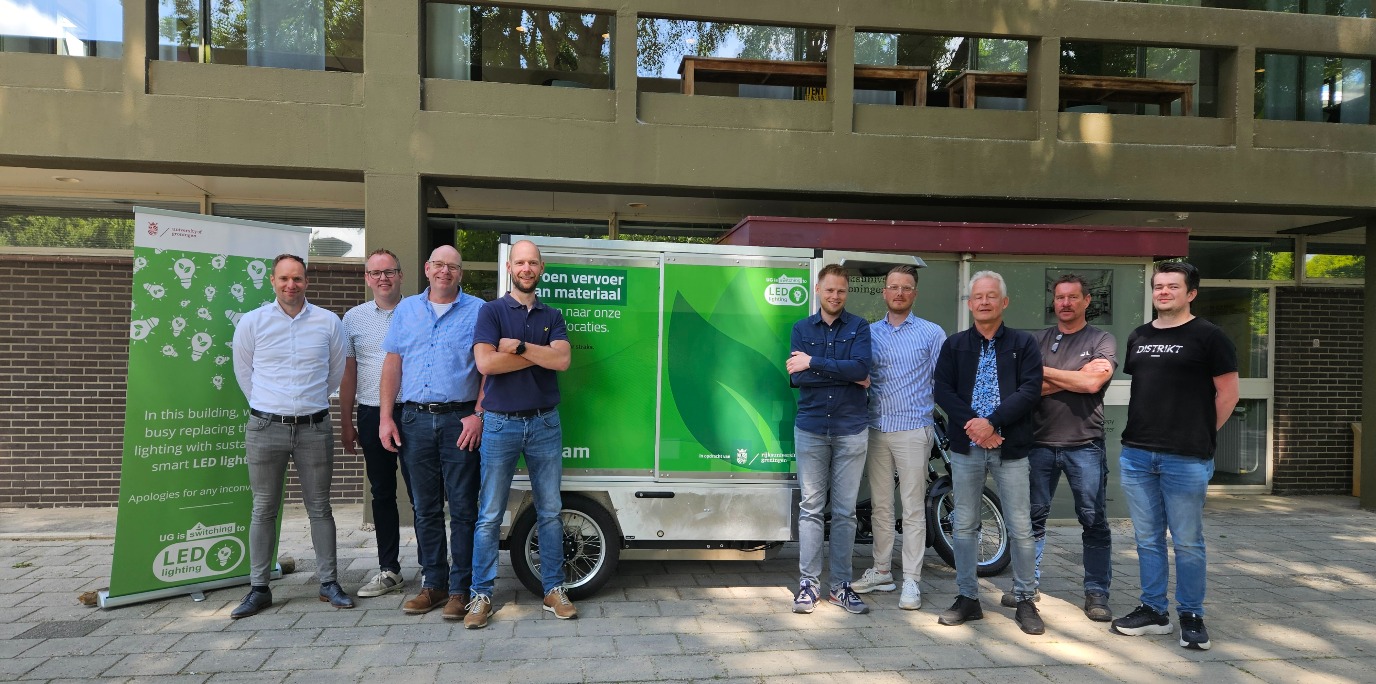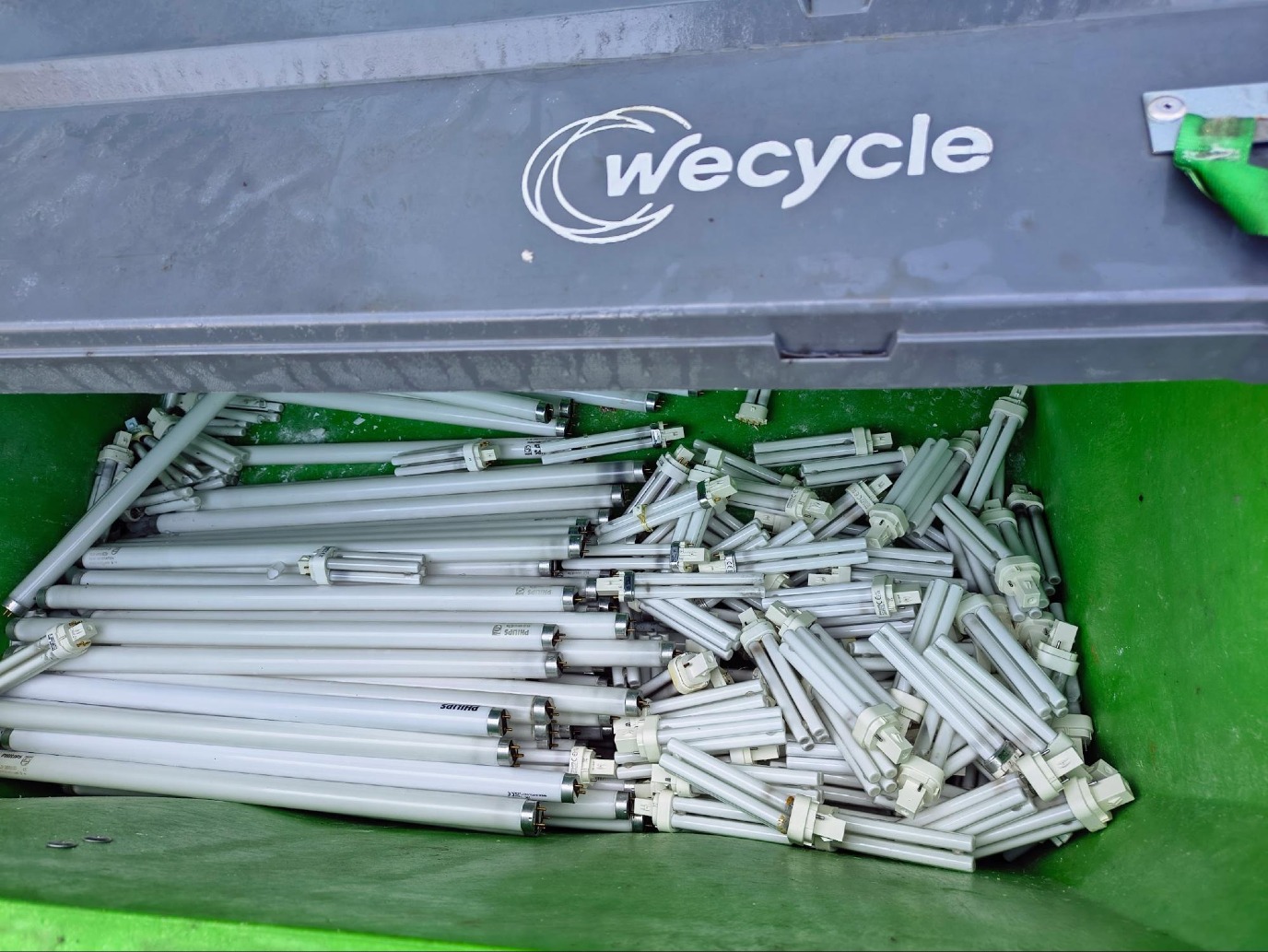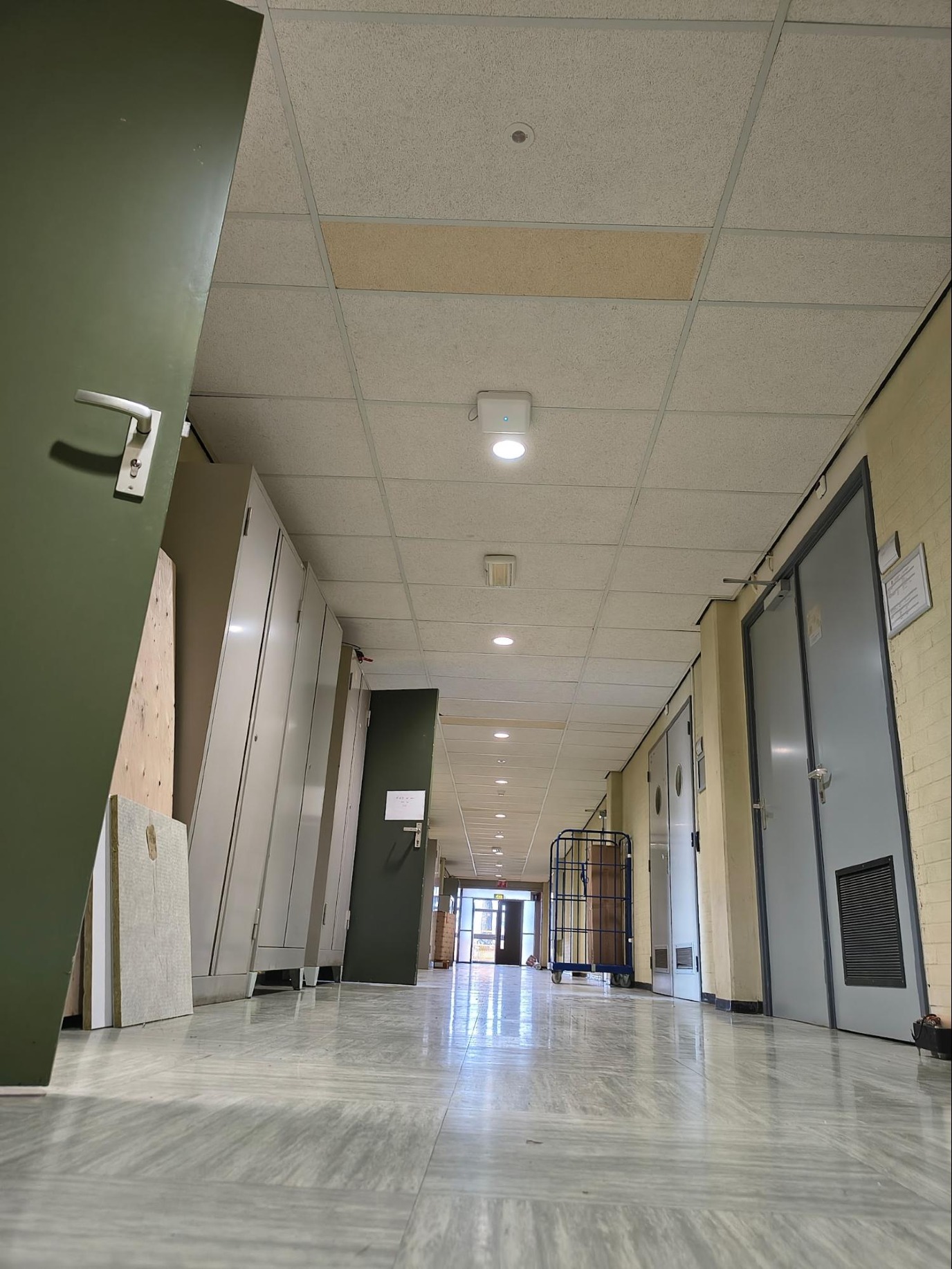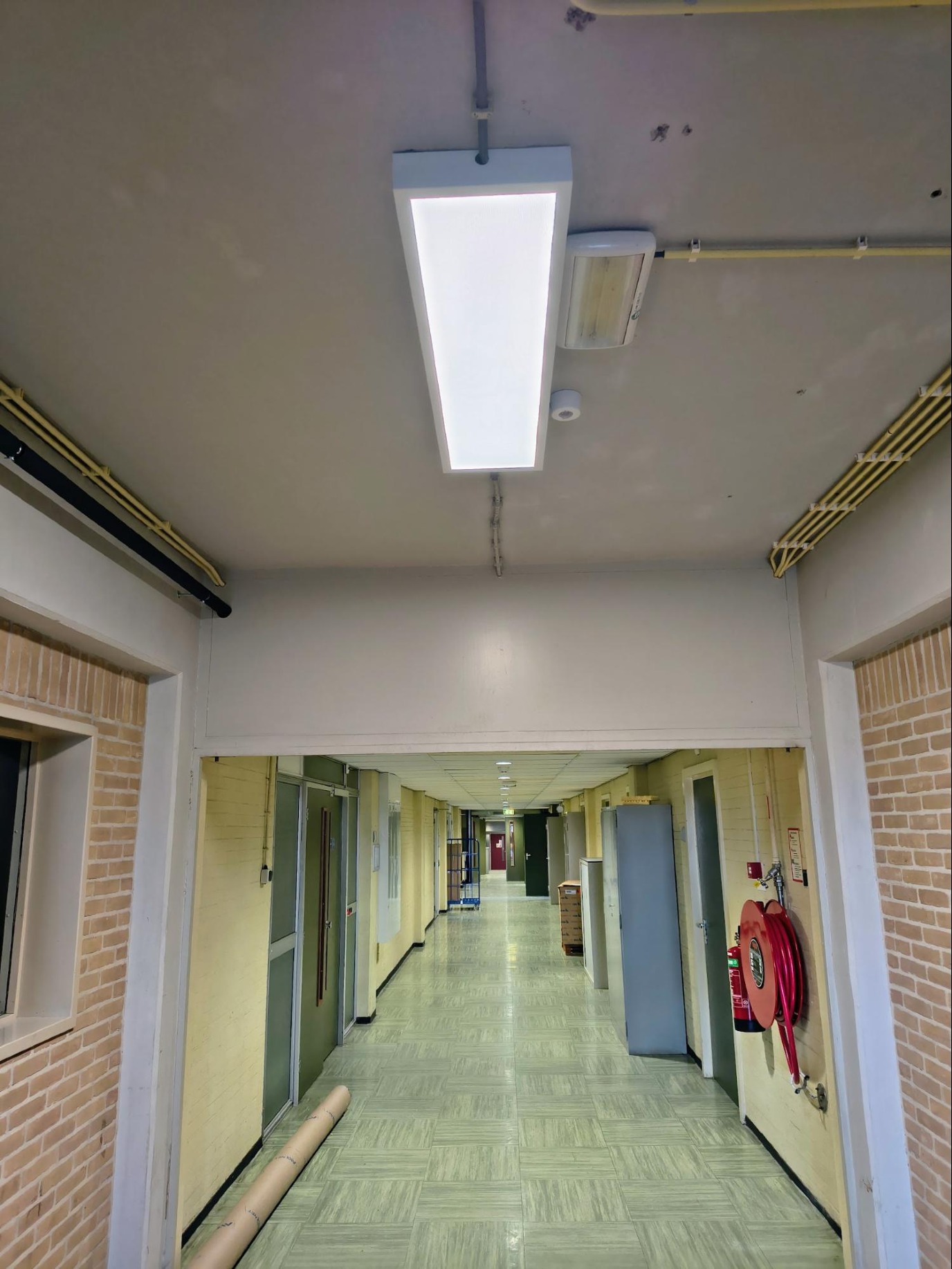First UG buildings switch to LED lighting in large-scale replacement operation
Last year, the University of Groningen (UG) announced its LED IT GLOW initiative to replace all outdated lighting with smart, sustainable LED lighting. The contractor BAM Bouw en Techniek – Integrale Projecten Noord has now completed the replacement of the last old lamps with the new lighting concept at the Zernikelaan 25 building (formerly KVI-CART) and in several sections of the Medical Sciences buildings. Work continues intensively on replacing lighting in other sections of the Healthy Ageing Campus, while follow-up projects in the city center are being prepared.

What is LED IT GLOW?
As part of the LED project, the UG will replace approximately 40,000 traditional lamps with smart LED lighting. This will reduce the university’s CO₂ emissions and lead to structural energy cost savings. Once all old lights have been replaced over the coming years, the UG expects a 50–80% reduction in energy consumption for lighting.
Smooth transformation
“The new lighting is perceived as more pleasant,” says JP uit Oude Groeneveld, building manager of Zernikelaan 25. “Thanks to LED lighting with sensors, the lights switch on and off automatically and adapt to ambient light: brighter during dusk or darkness, and dimmer when there’s plenty of daylight.”
The transformation process also went smoothly with minimal disruption. “We had daily consultations with BAM’s workers, which helped the project run efficiently. In an old building like this, you sometimes encounter surprises, which can present challenges. We’re very satisfied with the result.” Richard Smit, site manager at BAM, is also positive about the collaboration: “UG staff are engaged, think along with us, and appreciate our work. That greatly motivates our team. Thanks to smart planning, flexibility, and mutual trust, we're making great progress in making the UG more sustainable.”

Recycle old lamps: protect the environment and reuse resourcesAll old lighting from UG buildings is collected and processed into raw materials. Recycling old lighting prevents environmental harm and promotes the reuse of valuable materials such as glass, aluminum, and phosphorus. About 92% of raw materials are recovered, while proper disposal ensures that toxic substances like mercury don’t end up in the environment. LED lighting contains no harmful substances (such as mercury) and is more energy-efficient than traditional lighting. Thanks to its longer lifespan and lower energy consumption, LED lighting reduces CO₂ emissions and lowers costs. Choosing LED contributes to a more sustainable environment and a circular economy. So never throw away an old lamp with the bulk waste—take it to one of the many collection points.
|
Timeline
Over a five-year period, indoor lighting will be replaced university-wide. This operation is being carried out by BAM Bouw en Techniek. The first buildings - Zernikelaan 25 (formerly KVI-CART) and parts of the Medical Sciences buildings - have now been successfully completed. By the end of 2025, BAM will begin adjusting lighting in several UG buildings located in the city centre. Buildings with recently installed LED lighting, those slated for renovation, or buildings that are to be sold are not included in this large-scale replacement operation.


More news
-
15 September 2025
Successful visit to the UG by Rector of Institut Teknologi Bandung

